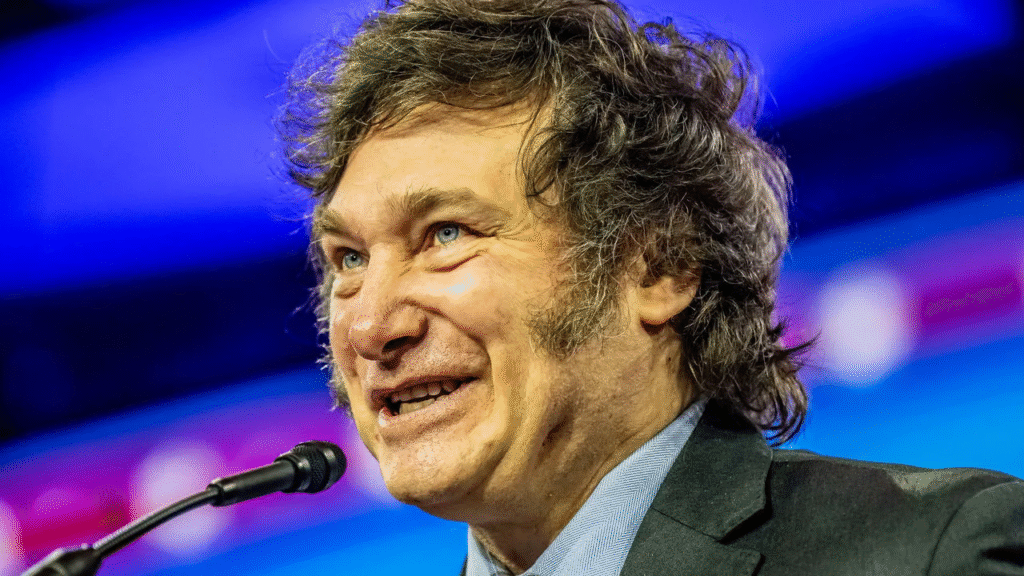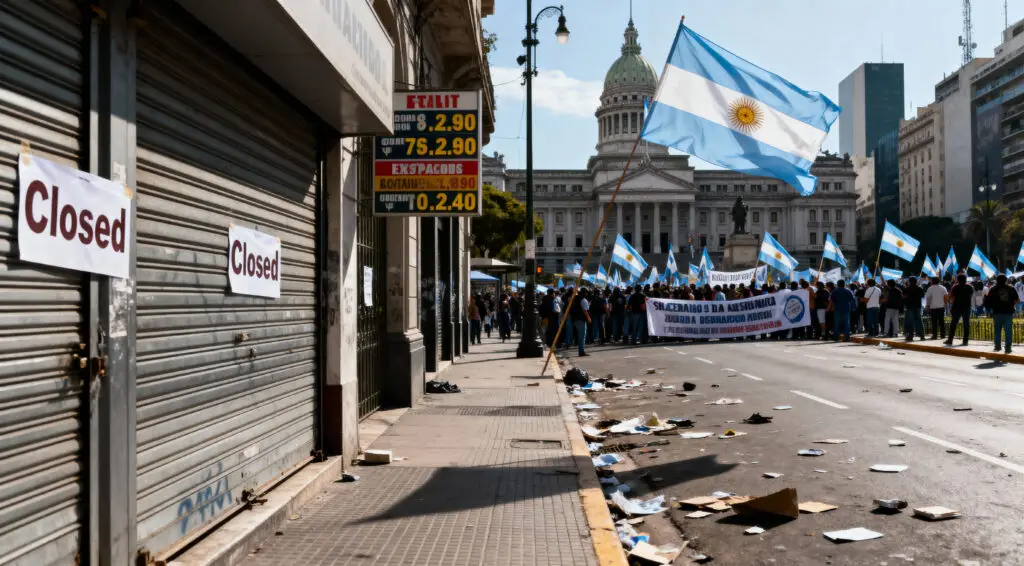Argentina Struggles With Milei’s Populist Economic Experiment
After President Javier Milei’s extreme populist changes to curb triple-digit inflation, Argentina is in a lot of financial trouble. Economists are now saying that his plan might make Argentina’s already unstable economy even more unstable.
Argentina is now the most expensive country in South America since Milei decided to freeze the currency rate. At the same time, hundreds of firms have shut down, and the number of people out of work is going up.

Source: The Economist
Economic Damage Mounts as Businesses Collapse Nationwide
Argentina apparently lost about 254,000 registered employees between December 2023 and July 2025 because people stopped buying things. Businesspeople say that the present economic crisis is the worst it has been in decades.
Removing tariffs that safeguard domestic manufacturing has caused local manufacturers to lose a lot of money. Textile workers and pensioners are now protesting against big cutbacks to pay and pensions.
Populist Leaders Face Similar Challenges Worldwide
Milei’s money problems are similar to those of other populist leaders, including Donald Trump, Giorgia Meloni, and Nigel Farage. Each has pledged big, nationalist changes to the economy, but they will have a hard time making sure they work.
Trump’s plan to give Argentina $20 billion to help them out shows how populists depend on risky financial moves. Critics are worried that these kinds of actions might make long-term financial problems worse.
Recommended Article: Pennsylvania’s Erie Torn Amid Trump Tariffs and Economic Strain
Populism’s Appeal Amid Global Economic Uncertainty
Populism grows when people are having trouble with money and don’t trust the usual political elites. The problems that came following the 2008 financial crisis and the pandemic made it easier for populist forces to grow in Europe and abroad.
Right-wing parties in Italy and France garnered support by blaming immigration and globalization for stagnant salaries and job losses. Disillusioned middle-class voters really connect with these stories.
Contradictions in Populist Economic Strategies
Populist politicians typically use protectionist language while pushing for measures that slash taxes and deregulate businesses. Economists say that these kinds of paradoxes make things unclear and hurt people’s trust in the market.
Nigel Farage’s Reform Party in the UK has had a hard time keeping its promises to lower taxes and bring back jobs in the UK. Analysts say that there might be problems with the economy.
Academic Research Links Populism to Economic Decline
The American Economic Review published research in 2023 that looked at more than fifty populist governments since 1900. The scientists found that after 15 years, nations headed by populists see their GDP per capita drop by an average of 10%.
The study identified persistent trends of economic breakdown, institutional deterioration, and diminished investor confidence during populist governance. These consequences frequently endure subsequent to the departure of populist leaders from government.
Populists Endure Politically Despite Economic Fallout
Populists frequently stay popular for years, even when the economy is bad, by presenting criticism as attacks from elites. Their charm and ability to connect with people on an emotional level help keep voters loyal.
Experts say that populist politics are based more on resentment and distrust than on specific policy results. As the crisis in Argentina gets worse, other countries may soon have to make similar political decisions.























